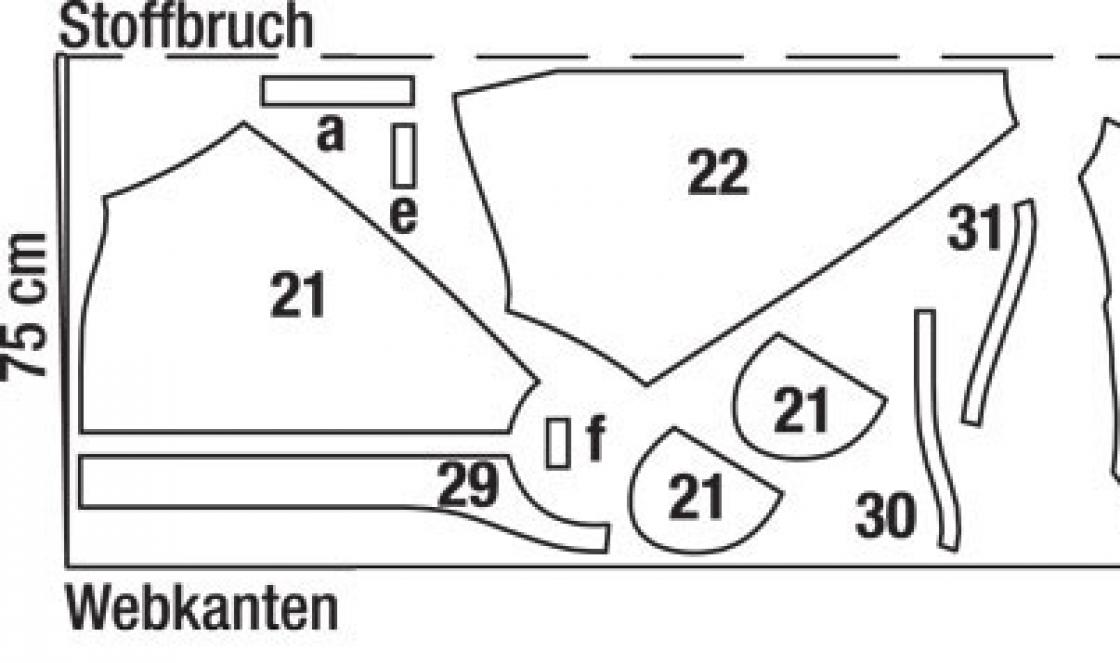), one of the readers asked the question: “What does it mean to make a decision and how to do it?”
At first glance, the question is strange, but if you think about it, it is much more serious than it seems.
To make a decision, you need to have the intention to change your life or something specific in life.
A decision presupposes a subsequent action, and if the decision has no consequences, then it remains only an intention.
If you have no intention of changing your life, you will not be able to make a serious decision about your life and your future.
A person is ready or not ready for change. If he is ready, then the decision made does not raise any doubts in him, even if the implementation of the decision is associated with inconvenience and difficulties.
It is very important to start thinking in a certain direction and the energies of Pure Light and Pure Reason coming to Earth today will help you not only see yourself from the outside, but also determine your future path, if not in general, then at least in stages. To do this, you need to set high, far-reaching goals.
Defining a goal is already a decision. If you have not made the decision to go towards a goal, then you will never know how to achieve this goal, you will not even see the opportunities presented to you.
If you have the intention to change your life, then another question arises: “How to move from intention to action?”
Change can only come into your life if you make room for it. To get something, you have to give up something. To make room for the new, get rid of the old. With old junk in new life are not accepted.
Water floods the old.
The past burns in fire.
Hurricanes carry away excess.
Tornadoes uproot what is unnecessary.
We hold on tightly to the old,
And the past is dear to us,
And we can’t do without unnecessary things,
And we need the unnecessary.
The old pulls us into the past,
There is so much unnecessary in the past,
This is superfluous, long unnecessary,
And what we needed became superfluous to us.
The spent old past -
Heavy, unnecessary, predatory.
It closes off the future.
It is, in fact, superfluous.
If you don’t get rid of it yourself, tomorrow they will take it away from you: things that do not correspond to the times will deteriorate, equipment will break, unnecessary connections will be severed...
If you don’t set a goal today to leave a job that’s not right for you, you’ll miss the chance to leave on time and sooner or later you’ll be kicked out; if you live in a rented apartment and do not set yourself the goal today of having your own apartment or house, then you are giving up the opportunity you have; If you don’t decide today to develop your abilities, then tomorrow you may no longer have these abilities.
Each person has his own: one needs to decide to start a family, another to get a divorce, a third to move to another area, a fourth to return to their homeland. Some people need to go travel, while others need to leave their parents' home and start an independent life. How many people - so many decisions.
Last chance to make the right decision for yourself. There won't be any more chances. At best, you will remain dissatisfied with what you have, and at worst, you will remain broke, as in the famous fairy tale.
The Energies of the Highest Wisdom are already coming to Earth, and after them will come the Energy of the Incarnation of Divine Love - the most powerful catalyst of all existing processes. If you do not decide to get out of the process of disintegration, then you will remain in this irreversible disintegration.
Every day we have to make dozens of decisions - to do this or that, agree or refuse.
And almost every time this is accompanied by doubts, worries and postponement of decision-making.
So how? make the right decision and learn to make the right choice?
Here are 10 ways.
1 - Just make the decision that you like.
According to statistics, 7 decisions out of 10 managers of large companies turn out to be wrong. 40% of companies that were on the Fortune 500 list 20 years ago best companies the world no longer exists.
Even the most successful and experienced people make mistakes very often.
So relax, make a decision and start taking action.
You need to understand that while you are thinking, you are standing still and wasting time.
You are not a sapper for whom any mistake is fatal.
Even if you make a mistake, you have a second, third, or as many attempts as you like. Plus, every time you do something, you gain knowledge, experience and better begin to understand how to make the right choice.
2 - Determine the price of your solution.
What happens if you do this or that and the choice turns out to be wrong? Write down the possible consequences and make a decision based on this. But you should know that a decision with minimal consequences often produces weak results.
For strategic tasks, it would be a good idea to write down possible consequences your decision. With Canva, you can create an online decision tree that will help you visualize possible alternatives and make it easier to make the right decision. - https://www.canva.com/ru_ru/grafik/derevo-resheniy/
3 - Determine the best result - Which decision will move you the most forward? Those who strive for more win in life. And those who are afraid to take risks are content with ordinary life. Think, maybe sometimes it's worth taking a risk. Yes, you can lose more. But you can get more. And even if you fail, you can always return to another decision. So go for it. Success favors the brave.
4 - Ask your subconscious - most people try to make a decision based on logic. But its capabilities are limited by the amount of information that is in the mind.
Use your subconscious. In the evening, think about your problem and possible solutions. And before going to bed, ask yourself - Which solution should you choose?
And in the morning you will wake up with a clear understanding of what is worth doing.
All our experiences are stored in our subconscious. And we only get access to it in our dreams. Plus, the subconscious can connect to the unified information field of the universe. Remember, Mendeleev discovered his table in a dream.
So ask your subconscious a question and go to bed. You will learn more about this technique in this video.
5 - Do something- To make the right decision you need to have certain information. But where can I get it? Books, videos, articles are just theories. The information you need will only be given by practical experience, which can only be obtained by doing something.
If you are in doubt or choosing from several options, just do something in the direction of each option. And you will immediately understand which solution is best for you.
6 - Ask more successful person - Such a person can help you in literally 5 minutes. He knows and can do more than you. Search successful people in your surroundings. Sign up for training. Ask your question on a thematic forum or group. The only thing is that you don’t need to ask everyone. Listen only to those who have actually solved problems similar to yours and have real life experience in overcoming them. But if there is no such person, then
7 - Imagine yourself as a super hero- Put yourself in the shoes of a person who is a symbol of confidence and success for you. And think about what solution he would choose.
Often, internal fears and doubts prevent you from making a decision. When you imagine yourself as a super hero, all this disappears and making a decision becomes much easier.
8 - Expand the number of options - Often people choose from 2-3 options. But there are many more possible solutions. Gather information, ask friends, think about other solutions. Such work will allow you to better understand the situation, expand your consciousness and allow you to choose the most informed decision.
9 - Let your brain sort everything out - Modern man decides a lot on the run, on emotions, in a time-poor mode.
But if you take a day of rest, calm down, stop thinking too much, then a lot becomes clearer and a decision is chosen by itself.
There is a good expression: morning is wiser than evening. So just disconnect from the problem, do something pleasant and make a decision with a fresh mind.
10 - Write down all the pros and cons and compare
Choose 2-3 options and write each on a separate sheet. And make a list of pros and cons. This clarifies a lot and it immediately becomes clear to you which solution is more beneficial for you.
That's all.
But remember, a decision is not a decision until you act on it.
To make it easier for you, here are 50 step-by-step instructions
How often do we think: “If only we knew where to fall...”. How sometimes we regret unused opportunities or wrong actions. Everyone would like to know and understand how to make the right decision that would lead along the right path to the intended goal. However, we sometimes forget about the most important things. About what is ours
personality is in constant development. Solving new problems, facing unusual and unusual circumstances, we change. This means that goals, values, and priorities also do not stand still. They change with us. That is why the question of how to make the right decision is better posed for the “here and now”, and not looking ahead, and even more so
The author had the opportunity to talk with many people who sometimes found themselves at difficult crossroads in life. And this is what is typical for those who gave the impression of a self-confident, accomplished person - they did not regret the past! Not even if I had to change my way of life, country, or field of activity many times. They didn’t revel in self-pity if they had to lose all their property and start all over again. Therefore, in order to understand how to make the right decision, you need to clearly understand: a lot depends on us, but not everything. What seems right at a certain moment may turn out to be a mistake. That's why more

Most of the people who suffer from failure are inflexible people who find it difficult to adapt and act according to circumstances. And our path is not always smooth and spacious. Therefore, the first piece of advice is to relieve yourself of the burden of excessive responsibility. A person is designed in such a way that in any situation he can find both joy and disappointment. Even if you have achieved your "goal", it may always seem that "the palace is too small and the molasses is too sweet."
So, which one you won't regret? First of all, try to trust fate and intuition. Very often we hesitate and doubt if there is some difference, for example, between reason and feelings, between desires and duty. But this situation is also an incentive for development. And intuition, which we often underestimate or drown out, is what helps us make the right decision. You should not think that this is something supernatural, a “voice from above.” It’s more likely that your subconscious processes the situation in its own way. Our elementary, physiological reactions often tell us where we will feel good and where we won’t feel so good. For example, if you are looking for new job, listen to your intuition. If a conversation with your future boss puts you in a positive mood, this is good start. But if the building itself, the atmosphere reigning there, appearance and the way the staff communicate is stressful and depressing, if you don't feel comfortable in a given place - perhaps this is a warning.
How to make the right decision in your personal life? The advice is the same. Don't try to reason, plan, think in lofty categories. Just feel the situation, immerse yourself in your feelings. How communication with this or that person will turn out is often decided by the first minutes. And if we are comfortable, we feel safe, this means this relationship has a future. And vice versa, if it is difficult for us to find common themes, if we are constrained, but, for example, the thought has stuck in our minds that this is an excellent game, try to trust our intuition. We live with the person, and not with his status, money or position in society.
Another technique will tell you how to learn to make the right decisions. This method can be called “look into the future.” The point is to try to imagine the possible development of events in as much detail as possible,

which will follow your choice. Are you offered a job, but you don't know whether to take it? Imagine yourself in this place in as much detail and color as possible in a year, two, five. What does your typical working day look like, how do you dress, how do you relax? Do you enjoy entering the office or do you try to come up with excuses to avoid appearing there as little as possible? By imagining this, you subconsciously prepare yourself to make a decision.
And perhaps the most well-known and effective method is to “sleep” with the problem. By asking yourself a question in the evening before going to bed, in the morning you will receive a ready answer. The subconscious or intuition will do all the work for you. Sometimes a conversation with a disinterested stranger helps. By speaking out loud all your arguments and doubts, you thereby come to a decision. Good luck to you!
When people share the worst decisions they have made in their lives, they often cite the fact that the choice was made in a fit of instinctive emotions: passion, fear, greed.
Our life would be completely different if Ctrl+Z operated in life, which would cancel decisions made.
But we are not slaves to our mood. Instinctive emotions tend to dull or disappear altogether. Therefore, folk wisdom recommends that when you need to make an important decision, it is better to go to bed. Good advice, By the way. It wouldn't hurt to take note! Although for many decisions, sleep alone is not enough. A special strategy is needed.
One of effective tools which we would like to offer you, strategy for success at work and in life from Susie Welch(Suzy Welch) - former editor-in-chief of the Harvard Business Review, popular author, television commentator and journalist. It's called 10/10/10 and involves making decisions through the prism of three different time frames:
- How will you feel about it 10 minutes later?
- How will you feel about this decision 10 months from now?
- What will your reaction be to this in 10 years?
By focusing our attention on these deadlines, we distance ourselves some distance from the problem of making an important decision.
Now let's look at the effect of this rule using an example.
Situation: Veronica has a boyfriend, Kirill. They have been dating for 9 months, but their relationship can hardly be called ideal. Veronica claims that Kirill is a wonderful person, and in many ways he is exactly what she has been looking for throughout her life. However, she is very worried that their relationship is not moving forward. She is 30, she wants a family and... She doesn’t have an endless amount of time to develop her relationship with Kirill, who is approaching 40. During these 9 months, she never met Kirill’s daughter from her first marriage, and the cherished “I love you” was never heard in their couple from either side.
The divorce from my wife was terrible. After this, Kirill decided to avoid serious relationship. Moreover, he keeps his daughter out of his personal life. Veronica understands that he is hurt, but she is also offended that such an important part of her loved one’s life is closed to her.
Veronica knows that Kirill does not like to rush into making decisions. But should she then take the step herself and say “I love you” first?
The girl was advised to use the 10/10/10 rule, and this is what came out of it. Veronica was asked to imagine that right now she had to decide whether she would confess her love to Kirill over the weekend or not.
Question 1: How will you feel about this decision 10 minutes later?
Answer:“I think I would be worried, but at the same time proud of myself for taking a risk and saying it first.”
Question 2: How would you feel about your decision if 10 months had passed?
Answer:“I don’t think I’ll regret it 10 months from now. No, I won't. I sincerely want everything to work out. Those who don’t take risks don’t drink champagne!”
Question 3: How will you feel about your decision 10 years later?
Answer:“No matter how Kirill reacts, in 10 years the decision to confess your love first is unlikely to matter. By this time, either we will be happy together, or I will be in a relationship with someone else."
Note that the 10/10/10 rule works! As a result we have quite simple solution:
Veronica must take the lead. She will be proud of herself if she does this, and sincerely believes that she will not regret what she did, even if nothing works out with Kirill in the end. But without consciously analyzing the situation according to the 10/10/10 rule, making an important decision seemed extremely difficult to her. Short-term emotions—fear, nervousness, and fear of rejection—were distracting and inhibiting factors.
What happened to Veronica after that, you are probably wondering. She still said “I love you” first. In addition, she tried to do everything to change the situation and stop feeling in limbo. Kirill did not confess his love to her. But progress was evident: he became closer to Veronica. The girl believes that he loves her, that he just needs a little more time to overcome his own and admit that the feelings are reciprocated. In her opinion, the chances that they will be together reach 80%.
In the end
The 10/10/10 rule helps you win the emotional game. The feelings that you are experiencing now, at this moment, seem intense and sharp, and the future, on the contrary, is vague. Therefore, emotions experienced in the present are always in the foreground.
The 10/10/10 strategy forces you to change your perspective: consider a moment in the future (for example, in 10 months) from the same point that you look at in the present.
This technique puts your short-term emotions into perspective. This is not to say that you should ignore them. Often they even help you get what you want in a given situation. But you shouldn't let your emotions get the better of you.
It is necessary to remember the contrast of emotions not only in life, but also at work. For example, if you deliberately avoid having a serious conversation with your boss, you are allowing your emotions to get the better of you. If you imagine the possibility of having a conversation, then after 10 minutes you will be just as nervous, but after 10 months, will you be glad that you decided to have this conversation? Will you breathe a sigh of relief? Or will you feel proud?
What if you want to reward the work of an excellent employee and are going to offer him a promotion: will you doubt the correctness of your decision after 10 minutes, will you regret what you did 10 months later (what if other employees feel left out), and will it Does the promotion make any difference to your business 10 years from now?
As you can see, short-term emotions are not always harmful. The 10/10/10 rule suggests that looking at emotions in the long term is not the only correct one. It only proves that the short-term feelings you experience cannot be at the head of the table when you make important and responsible decisions.
Every day a person is faced with situations that require making some kind of decision, from choosing products to choosing a place to study or work. At the same time, for many people this is a real disaster, since there are many doubts and fear that the choice will be made incorrectly. In such a situation, information on how to make a decision when in doubt will come in handy. Psychologists have been interested in this topic for a long time, so they have developed several techniques that allow you to do everything right.
How to make the right decision in life?
There are many different factors that make a person suffer from doubts. For example, some people in difficult situations they rely only on their experience and opinions, without taking advice from others, while others tend to build some kind of illusions, which does not allow them to see reality.
Tips for making an important decision:
- Expand your boundaries. In many situations, in addition to the standard yes/no answer, there are a huge number of other solutions. For example, when wondering if you should, it might be worth talking to your boss to fix the irritants.
- Detach yourself from emotions. When figuring out how to make a difficult decision, one cannot ignore the emotional factor, since it is this factor that often prevents a person from soberly assessing the situation and understanding its essence, which ultimately leads to making wrong decisions. In such situations, psychologists suggest answering the question: “How will I feel having made this choice in five minutes, several months or a year?”
- Use as much information as possible. Today, thanks to the Internet, you can find answers to almost any question. Many people write their reviews about products, services, vacation spots, and even about the companies where they work.
- Weigh the pros and cons. Many psychologists, when thinking about the topic of how to make an important decision in life, advise getting visual confirmation by making two lists. On one write down possible prospects and advantages, and on the second write what you will have to lose and the existing disadvantages. This will allow you to set priorities correctly and not make mistakes.
- Be interested in other people's opinions. Here it is important to choose the right adviser and it is best to contact a person who is primarily competent in this area and has achieved some success. This will allow you to get rid of excess arrogance and get





